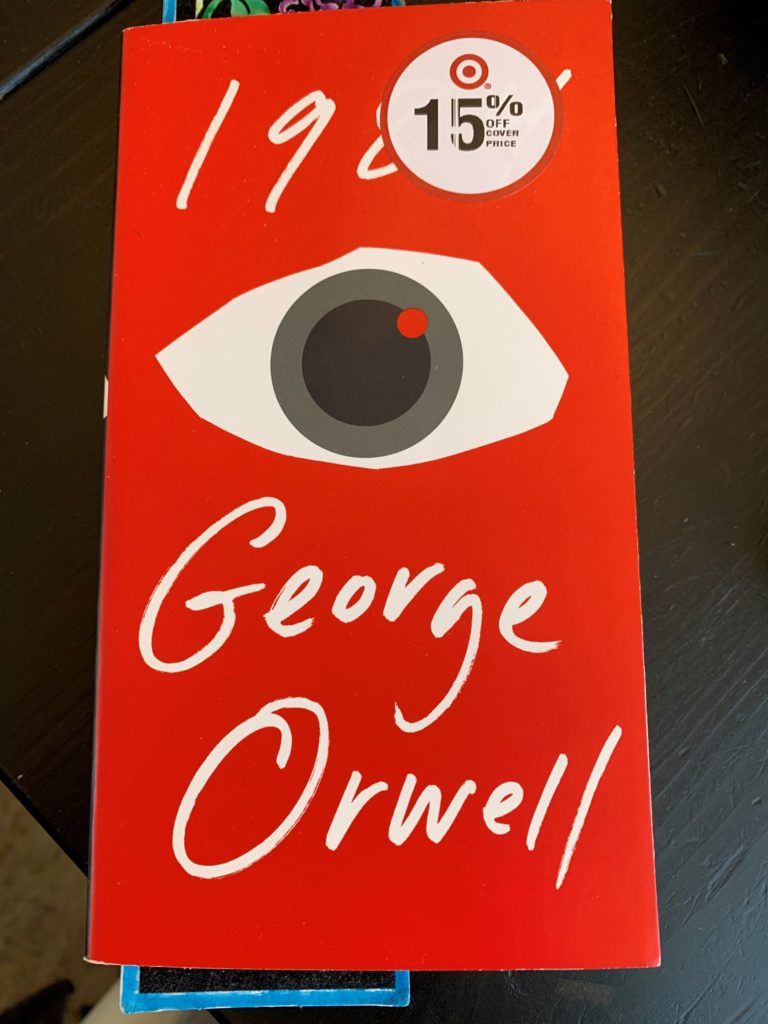I am sure that everyone has been sitting on pins and needles waiting for this day. Today, I am going to discuss my opinion and analysis of 1984. I have spilled a few drops along the way so my opinion shouldn’t be a complete surprise. I will caution that this post is not going to be an academic thesis. Let us first get into my motivations in the first place.

Hopefully, you realize that freedom is one of my anchor tenants of this blog. I picked 1984 to read and analyze because I thought that it did a pretty good job of forecasting the future when it was published in 1948. When I say pretty good job, I really mean scarily accurate. What I didn’t realize until halfway through the book that this book is not really about freedom.
Now, before everyone gets too carried away, remember what I said in my very first post of 1984. It is not my intent to speak for Orwell, he could have done that himself. It is my attempt to analyze what I read and provide an opinion. And my opinion is that this is not a book about freedom. So, let us unwind that some more.
First we need to look at the origins of the story and the author. Orwell (real name Eric Arthur Blane) was born in India in 1903. He was born in imperial India under British rule but the family soon after moved to Great Britain. That did mean that he travelled the world under a favored passport. I would say his formative years were were forming the opinions that come out in 1984.
I think from reading Orwell’s biographical information, there is no doubt that geo-socioeconomic politics have colored his thoughts and opinions. This was a very tumultuous time with the Bolshevik revolution, Spanish Revolution, World War 1,2 and the pinnacle of the British Empire all occurring in his lifetime. Also coinciding with that was the prominence of psychological research along with Eugenics and progressive thought.
I think that this book is a story about Freudian theory of psychoanalysis. Orwell uses his beliefs about politics to support the story and develop Winston as the representative of the three types of personalities. In case you are not familiar with these, they are simply defined as the following.
- Id – Subconscious thought
- Ego – Conscious thought
- Super Ego – Values and morals
Clues started coming to me with the dreams, the verbal out lashes, the mother issues, the seeking of erotic pleasure. Those things could have been interpreted as the repression as they were portrayed or something larger. To me, I could not make another connection to those events to the story line without going straight to Freud. Throughout the book, all three personalities were clashing, particularly in section 3.
I am by no means an expert in this area, but I started questioning my beliefs that this was a story about freedom when the book got into section 3. My limited research into psychoanalysis has caused me to understand that there is a personality progression. It seems to be tied largely to age, but I didn’t see anything strictly limiting to such. In fact, some sources supported the idea that not progressing through the stages leads to neurosis, clearly a trait that Winston exhibited at times.
While the Freudian theories were first introduced in 1890, Great Britain created the Psychological society in 1913 which was right before World War 1. It was expanded in 1919 after the war. I think that it is highly plausible that Orwell as a student was not only exposed to these theories but was highly impressionable at that young age.
The story just doesn’t go with the flow that I would expect. In fact, very little of section 3 makes much sense. Yes, there is a societal warning in 1984 but the reprogramming of Winston to accept Big Brother doesn’t make much sense without Freud. Orwell could have ended 1984 shortly after Section 2 if he just wanted a warning or he could have made Winston and Julia heroes if he wanted to go the other direction.
My point is that this story went on way too long or at least not in the correct direction if this was simply a story warning about totalitarian governments. As of right now, my belief is that Animal Farm is a story more in line with the freedom vein by Orwell. I also think that the notoriety of that earlier work has blinded people into pigeon holing Orwell into social commentary rather than being more broad which is where I am falling on the spectrum.
End Your Programming Routine: Orwell died in 1950 not long after 1984 was published. It is unfortunate that he did not get to see the juggernaut that he created and then maybe I wouldn’t even be discussing this. I also looked around and there doesn’t seem to be any commentary from Orwell about it. There is plenty of other’s opinions out there, but again it is just that which of course you know by now that I am taking a different direction.
Recent Comments